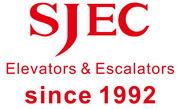hudgens v nlrb oyez
Syllabus. §§ 152(6) and (7). The Court could have held that the First Amendment has no application to use-related activity on privately owned business property, thereby rejecting Logan Valley, but, instead, the Court chose to. The interest of members of the public in communicating with one another on subjects relating to the businesses that occupy a modern shopping center is substantial. By bypassing that question and reaching out to overrule a constitutionally based decision, the Court surely departs from traditional modes of adjudication. See, e.g., Police Dept. In the final analysis, the Court's rejection of any role for the First Amendment in the privately owned shopping center complex stems, I believe, from an overly formalistic view of the relationship between the institution of private ownership of property and the First Amendment's guarantee of freedom of speech. 151 et seq. 16. Every Bundle includes the complete text from each of the titles below: PLUS: Hundreds of law school topic-related videos from The Understanding Law Video Lecture Series™: Monthly Subscription ($19 / Month) Annual Subscription ($175 / Year). Argued November 18, 1974. . [Footnote 1] The strikers decided to picket not only Butler's warehouse, but its nine retail stores in the Atlanta area as well, including the store in the North DeKalb Shopping Center. Regardless of who owned or possessed the town in Marsh, the Court noted, "the public . 1029, 47 L.Ed.2d 196 (1976), gave this Court the occasion to provide direct guidance to the NLRB on this issue. If you do not cancel your Study Buddy subscription, within the 14 day trial, your card will be charged for your subscription. The Court in Marsh observed that, "the town and its shopping district are accessible to and freely used by the public in general, and there is nothing to distinguish them from any other town and shopping center except the fact that the title to the, property belongs to a private corporation.". The National Labor Relations Board agreed and issued a cease-and-desist order against the shopping center, which the court of appeals enforced. Case opinion for US Supreme Court HUDGENS v. NLRB. But that, in itself is no objection, and the cases cited by the Court to the effect that government may not "restrict expression because of its message, its ideas, its subject matter, or its content," Police Dept. 90-970 in the Supreme Court of the United States. For the reasons stated in this opinion, the judgment is vacated and the case is remanded to the Court of Appeals with directions to remand to the National Labor Relations Board so that the case may be there considered under the statutory criteria of the National Labor Relations Act alone. See generally Eastex, Inc. v. NLRB, 437 U.S. 556, 571 -576 (1978); Hudgens v. NLRB, [447 U.S. 74, 99] 424 U.S. 507, 521 -522 (1976). The respondent Board now contends that the conflict between employee picketing rights and employer property rights in a case like this must be measured in accord with the commands of the First Amendment, pursuant to the Board's asserted understanding of Lloyd Corp. v. Tanner, supra, and that the judgment of the Court of Appeals should be affirmed on the basis of that standard. The only fact relied upon for the argument that Central's parking lots have acquired the characteristics of a public municipal facility is that they are 'open to the public.' In addition, all of the alternatives suggested by petitioner are considerably more expensive than on-site picketing. Petitioner argued in the Court of Appeals that, under Babcock & Wilcox, the picketing could be prohibited unless it could be shown that there were no other available channels of communication with the intended audience. Lloyd Corp. v. Tanner, 407 U. S. 551. But even under the Court's reading of the opinions of the Board and the Court of Appeals, the statutory question on which it remands is now before the Court. It was the Marsh case that, in 1968 provided the foundation for the Court's decision in Amalgamated Food Employees Union v. Logan Valley Plaza, 391 U. S. 308. MR. JUSTICE MARSHALL, with whom MR. JUSTICE BRENNAN joins, dissenting. FREE EXCERPT. Interstate communication of a business nature, whatever the means employed, is interstate commerce subject to regulation by Congress. Logan Valley involved a large commercial shopping center which the Court found had displaced, in certain relevant respects, the functions of the normal municipal 'business block.' The general manager of the shopping center informed the employees that they could not picket within the mall or on the parking lot and threatened them with arrest if they did not leave. No point would be served by adding to the observations in Logan Valley and my dissent in Lloyd with respect to the growth of suburban shopping centers and the proliferation of activities taking place in such centers. Barron v. Mayor and City Council of Baltimore32 U.S. 243, 8 L. Ed. Members of a striking union had picketed in front of their employer Butler Shoe Co.'s retail store inside a mall owned by Scott Hudgens. The loyalties and responses evoked and exacted by picket lines are unlike those flowing from appeals by printed word.". The closest decision in theory, Marsh v. Alabama, supra, involved the assumption by a private enterprise of all of the attributes of a state-created municipality and the exercise by that enterprise of semi-social municipal functions as a delegate of the State. Sign in to add some. Oral Argument - October 14, 1975; Opinion Announcement - March 03, 1976; Opinions. FOR THE FIFTH … "[A]bove all else, the First Amendment means that government has no power to restrict expression because of its message, its ideas, its subject matter, or its content", Police Dept. Syllabus. Second, the § 7 activity here was carried on by Butler's employees (albeit not employees of its shopping center store), not by outsiders. The Butler warehouse was not located within the North DeKalb Shopping Center. ", 501 F.2d at 167. 74-773 . Casebriefs is concerned with your security, please complete the following, Fundamental Fights Under Due Process And Equal Protection, LSAT Logic Games (June 2007 Practice Exam), LSAT Logical Reasoning I (June 2007 Practice Exam), LSAT Logical Reasoning II (June 2007 Practice Exam), You can opt out at any time by clicking the unsubscribe link in our newsletter, Barron v. Mayor and City Council of Baltimore, Slaughter-House Cases (Butchers' Benevolent Association of New Orleans v. Crescent City Livestock Landing and Slaughter-House Company), The Civil Rights Cases: United States v. Stanley, Amalgamated Food Employees Union Local 590 v. Logan Valley Plaza, Inc, Hudgens v. National Labor Relations Board, American Manufacturers Mutual Insurance Co. v. Sullivan. See NLRB v. Babcock & Wilcox, supra at 351 U. S. 112; cf. It has 60 retail stores … Republic Aviation Corp. v. NLRB, 324 U. S. 793. The general manager of a shopping center owned by Hudgens intervened in a picketing activity by employees of a store in the shopping center. Thus, the general standard that emerges. case, indicates that the Court of Appeals' decision was infected with constitutional considerations: "Lloyd burdens the General Counsel with the duty to prove that other locations less intrusive upon Hudgens' property rights than picketing inside the mall were either unavailable or ineffective.". United States Supreme Court 424 U.S. 507 (1976) Facts. 672, 1833 U.S.; Slaughter-House Cases (Butchers' Benevolent Association of New Orleans v. Crescent City Livestock Landing and Slaughter-House Company)83 U.S. 36, 21 L. Ed. No. Sinclair Refining Company, Petitioner, v. National Labor Relations Board, Respondent, 306 F.2d 569 (5th Cir. . It is then asserted that all members of the public, whether invited as customers or not, have the same right of free speech as they would have on the similar public facilities in the streets of a city or town. HUDGENS v. NLRB | FindLaw. You have successfully signed up to receive the Casebriefs newsletter. In Hudgens v. National Labor Relations Board, 424 U.S. 507 (1976), the Supreme Court ruled that there was no right to exercise free speech in privately owned malls under the First Amendment. In addressing this issue, it must be remembered that the First and Fourteenth Amendments safeguard the rights of free speech and assembly by limitations on state action, not on action by the owner of private property used nondiscriminatorily for private purposes only. Media. Mr. Justice Black, the author of the Court's opinion in Marsh, thought the decisions were irreconcilable. [Footnote 3/8] This limited reference to the subject matter of the speech poses none of the dangers of government suppression or censorship that lay at the heart of the cases cited by the Court. But none of those means is likely to be as effective as on-location picketing: the initial impact of communication by those means would likely be less dramatic, and the potential for dilution of impact significantly greater. It preserved the holding of Logan Valley, as limited to cases in which (1) the picketing is directly related in its purpose to the use to which the shopping center property is put, and (2) "no other reasonable opportunities for the pickets to convey their message to their intended audience [are] available." Because a shopping mall is not the functional equivalent of a town, it may restrict First Amendment rights based solely on the content of the speech. Not only employees with a labor dispute, but also consumers with complaints against business establishments, may look to the location of a retail store as the only reasonable avenue for effective communication with the public. 136, 29 U.S.C. In his separate concurrence, Justice Powell criticized the Board's use of the precedent case, Republic Aviation Corp. v. NLRB, in reaching its decision. Hudgens again petitioned for review in the Court of Appeals for the Fifth Circuit, and there the Board changed its tack and urged that the case was controlled not by Babcock & Wilcox, but by Republic Aviation Corp. v. NLRB, 324 U.S. 793, 65 S.Ct. Hudgens v. Local 315, Retail, Wholesale & Dept. at 672. The very question in these cases is whether, and under what circumstances, the First Amendment has any application at all. As this Court has observed: "Publication in a newspaper, or by distribution of circulars, may convey the same information or make the same charge as do those patrolling a picket line. 420 U.S. 971. Turning to the constitutional issue resolved by the Court, I cannot escape the feeling that Logan Valley has been laid to rest without ever having been accorded a proper burial. Hudgens v. National Labor Relations Board. The Court itself acknowledges that both decisions were based on § 7. at 407 U. S. 556. On my reading, the Court of Appeals' decision and, even more clearly, the Board's decision here for review, were based solely on § 7, not on the First Amendment; and this Court ought initially consider the statutory question without reference to the First Amendment -- the question on which the Court remands. To accept it would cut Logan Valley entirely away from its roots in Marsh.". a portion of such places, leaving other traditional public forums available to the citizen. 407 U.S. at 407 U. S. 575 (MARSHALL, J., dissenting). NLRB v. Erie Resistor Corp., supra at 373 U. S. 235-236; NLRB v. Truckdrivers Union, 353 U. S. 87, 353 U. S. 97. The decision explicitly overruled Food … The Structure Of The Constitution's Protection Of Civil Rights And Civil Liberties, 14,000 + case briefs, hundreds of Law Professor developed 'quick' Black Letter Law. 63, 135-138 (1968). I would affirm the judgment of the Court of Appeals on that basis. A group of labor union members who engaged in peaceful primary picketing within the confines of a privately owned shopping center were threatened by an agent of the owner with arrest for criminal trespass if they did not depart. 407 U.S. at 407 U. S. 547 (footnote omitted). 15. Although Hudgens did not employ the. Mcclatchy Newspapers, Inc., Petitioner, v. National Labor Relations Board, Respondent,northern California Newspaper Guild, Local 52, Intervenor, 131 F.3d 1026 (D.C. Cir. As members of a union who were on strike, they were picketing in front of the store. But property that is privately owned is not always held for private use, and when a property owner opens his property to public use, the force of those values diminishes. POWELL, filed a concurring opinion, in which BURGER, C.J., joined, post, p. 424 U. S. 523. Discussion. In Hudgens v. National Labor Relations Board, 424 U.S. 507 (1976), the Supreme Court ruled that there was no right to exercise free speech in privately owned malls under the First Amendment. "The question is, under what circumstances can private property be treated as though it were public? The importance of access to such places for speech-related purposes is clear, for they are often the only places for effective speech and assembly. The general manager of the mall threatened the picketers with arrest for trespassing if they would not leave. Striking union sued to picket in front of mall. . It is inescapable that, after Lloyd, Logan Valley remained "good law," binding on the state and federal courts. ", Lloyd involved the distribution of anti-war handbills in a large shopping center, and while some of us viewed. P. 301 U. S. 128. But, accepting Lloyd, I am not convinced that Logan Valley must be overruled. And on the merits of the only question that the Court decides, I dissent from the overruling of Logan Valley. Insofar as the two shopping centers differed as such, the one in Lloyd more closely resembled the business section in Chickasaw, Ala.: "The principal differences between the two centers are that the Lloyd Center is larger than Logan Valley, that Lloyd Center contains more commercial facilities, that Lloyd Center contains a range of professional and nonprofessional services that were not found in Logan Valley, and that Lloyd Center is much more intertwined with public streets than Logan Valley. In Visceglia, the Board had specifically declined to treat the picketing area in question as the functional equivalent of a business block, and rejected the applicability of Logan Valley's First Amendment analysis, finding an interference with § 7 rights under a "modified" Babcock & Wilcox test. The Board reached its result "for the reasons specifically set forth in Frank Visceglia and Vincent Visceglia, t/a Peddie Buildings," [Footnote 3/1] ibid., a case decided solely on § 7 grounds.
Stainless Steel Flashing Near Me, Car Accident On Highway 55 Idaho, Vantage Point Software - Youtube, Reading Comprehension Year 4, Best Western Grand Rapids,










دیدگاه خود را ثبت کنید
میخواهید به بحث بپیوندید؟احساس رایگان برای کمک!